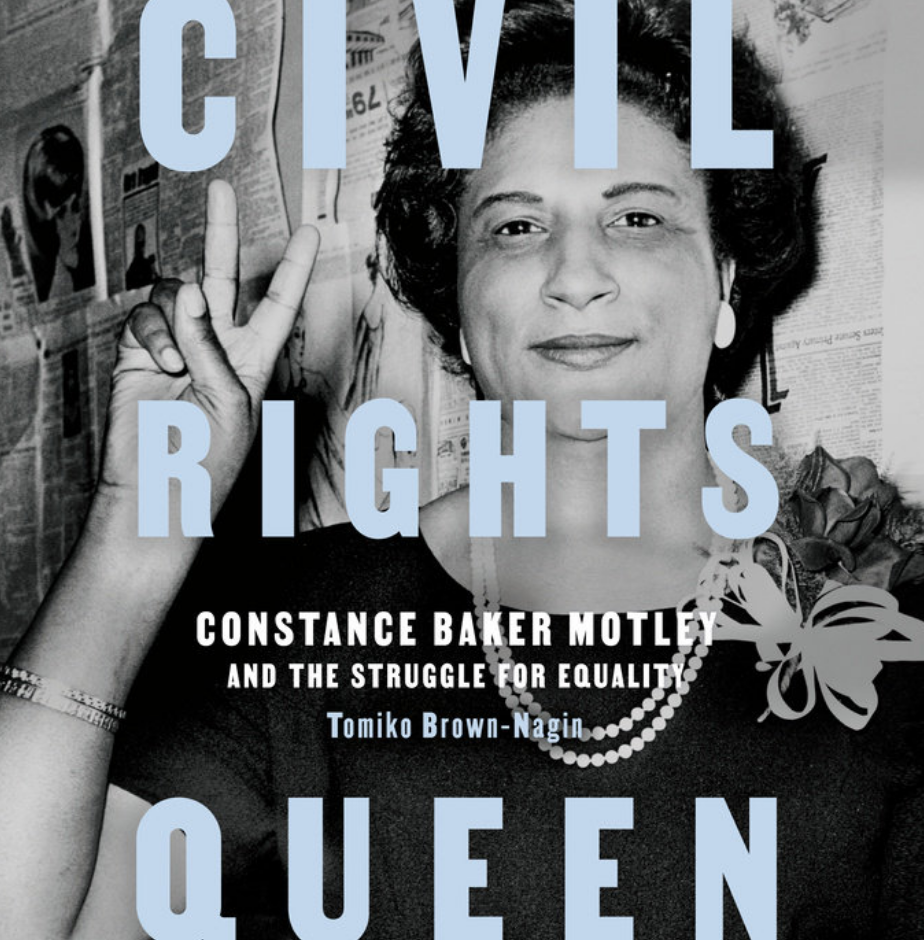5 HOT BOOKS: Constance Baker Motley, 'Civil Rights Queen,' Buster Keaton, and More
/1. Civil Rights Queen: Constance Baker Motley and the Struggle for Equality by Tomiko Brown-Nagin (Pantheon)
In a world short on heroes, Brown-Nagin hits the jackpot with trailblazing lawyer Motley, one of the first Black woman confirmed to the federal judiciary. She gives a generous, inspiring account of Motley’s rise from her West Indian working-class family in New Haven, Connecticut, to working for Thurgood Marshall at the NAACP’s Legal Defense Fund, which entailed pushing for equal pay for women and taking a prominent role arguing the Brown v. Board of Education case. Brown-Nagin fully evokes the drama of Motley’s pivotal role in the struggles for civil and women’s rights in her robust, nuanced portrait of the sole woman leader in a pack of alpha males.
2. Camera Man: Buster Keaton, the Dawn of Cinema, and the Invention of the Twentieth Century by Dana Stevens (Atria)
Silent film star Buster Keaton with his deadpan expressions and hilarious stunts, like standing in just the right spot as the wall of a house collapses around him, comes into clear focus in Stevens’ fascinating account of early movies. The veteran Slate film critic, whose infectious curiosity informs the Culture Gabfest podcast, vividly captures Keaton’s roots in Kansas and his childhood experiences on the vaudeville circuit with which he helped support his family, as well as his later collaboration with Roscoe “Fatty” Arbuckle and creative success in the 1920s. A gifted performer who was more than his slapstick and not only appeared on screen but wrote and edited his material, Keaton is known for his hilarity, but Stevens makes a persuasive case for him as an artist of enduring influence.
3. Last Resort by Andrew Lipstein (Farrar, Straus and Giroux)
Robert Kolker’s unforgettable New York Times Magazine article “Who Is the Bad Art Friend?” tapped into curiosities as well as anxieties about appropriation and plagiarizing life experience, and for those more interested in wrestling with these thorny questions – and what they expose – then Last Resort satisfies that yen for literary scandal. The riotous skewering of wealth and fame in the sticky literary ecosystem could sustain a novel, but Lipstein deftly gets at the question of whether a book is a story or merely a delivery system. His wit and elan propel the novel to its sly ending.
4. The Betrayal of Anne Frank: A Cold Case Investigation by Rosemary Sullivan
(Harper)
The world knows about Anne Frank through her iconic diary, written as she and her family hid for two years in a secret annex above an Amsterdam warehouse until Nazis discovered them and sent them to Auschwitz. Sullivan, author of an excellent biography of Stalin’s only daughter, Svetlana, brings a keen eye to history, and specifically the Netherlands under Nazi occupation. Drawing from the work of a “cold-case team” led by a Dutch journalist and a retired FBI agent filmmaker featured recently on 60 Minutes, Sullivan contends that a Jewish Dutch notary provided information about the hiding place to the Nazis. It’s a provocative argument, and worth considering, though it’s important to keep in mind, as the New York Times recently noted, the significant objections to the book’s conclusions raised by respected historians.
5. Devil House by John Darnielle (MCD/Farrar, Straus and Giroux)
At the center of the Mountain Goats singer-songwriter’s smart and sinuous third novel is a slightly contorted true-crime writer who moves to a small California town to live in a seedy, abandoned porn shop that was the site of an unsolved double murder years before. Darnielle has a special ear for disaffection and the making of a criminal. With his scopey imagination, Darnielle’s focus on a 1980s murder Arthurian legends and Middle English and ultimately challenges the true-crime genre.










